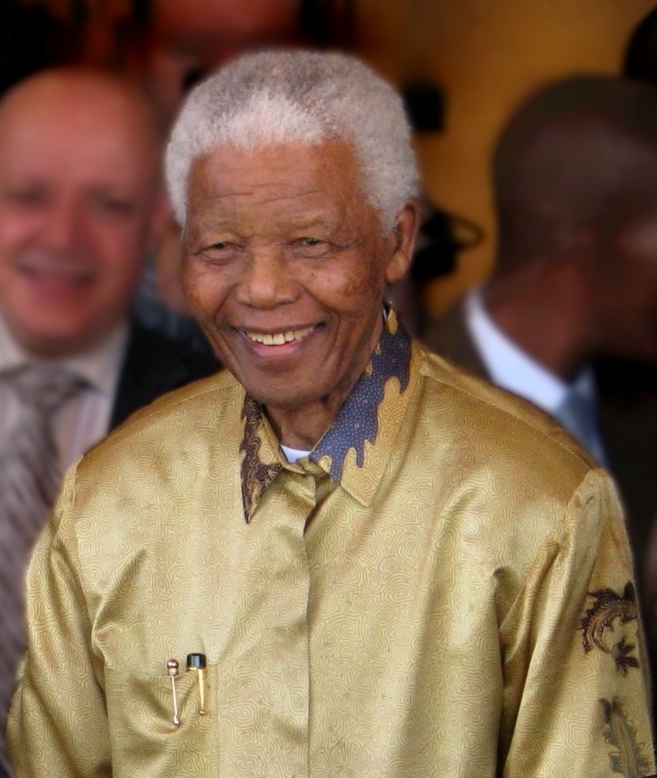I read Nelson Mandela’s 625 page autobiography last year. Apparently 27 years in prison provides adequate time [responsive] [/responsive]to remember every single detail of one’s life! But I stayed with it because I wanted to understand how someone treated so unfairly avoided bitterness and hatred. Why didn’t he come out swinging, determined to bring to justice those who had denied it to him? Why instead did he set up South Africa’s Truth and Reconciliation Commission to promote “unity”?
[/responsive]to remember every single detail of one’s life! But I stayed with it because I wanted to understand how someone treated so unfairly avoided bitterness and hatred. Why didn’t he come out swinging, determined to bring to justice those who had denied it to him? Why instead did he set up South Africa’s Truth and Reconciliation Commission to promote “unity”?
The Truth and Reconciliation Commission (TRC) was formed in South Africa after the abolition of apartheid using restorative justice principles. Victims were provided the opportunity to give statements about their experiences, as were perpetrators of the violence who could seek amnesty. Restorative justice, if you aren’t familiar, focuses on the needs of the victims and the offenders, as well as the affected community, rather than simply satisfying abstract legal principles or punishing the offender. Victims take an active role in the process and offenders are encouraged to take responsibility for their actions, to repair the harm through apology, returned stolen property and repaired damages where possible, or community service. Restorative justice focuses on victim and perpetrator as people rather than simply viewing a crime as a wrong against the state as is most often the case. Restorative justice also provides help for the offender in order to avoid future offenses, rather than simply imposing punishment. This approach shows the highest rates of victim satisfaction and offender accountability.1
The TRC was seen by many as a crucial to the transition of South Africa to a full and free democracy. Despite some flaws, it is generally thought to have been successful.2
Why do I care about Nelson Mandela and what he accomplished in his long life? Because often my clients feel unfairly treated and struggle to find healing and balance and the ability to move on with their lives. In fact, haven’t we all at one time or another felt we were victims of unfair treatment from someone else? Is there any of us who isn’t capable of indulging horrific fantasies of revenge against those who have committed such grievous wrongs?
But Madiba, as he was christened at birth, didn’t go there. Why not? While many will comment on Nelson Mandela’s remarkable life following his death today, here’s what I’ve learned from him:
1. Humiliating another person is unnecessarily cruel. Opponents can be defeated without dishonoring them. Mandela describes his Xhosa nation as a proud people “with an abiding belief in the importance of laws, education and courtesy.” 3 He relates a story about being unseated by an unruly donkey as a boy, leaving him embarrassed in front of his friends. He determined never to inflict indignity, choosing instead to honor even while opposing another. It can be tempting to make the other person suffer as much as we have. But that sets in motion a never ending cycle of indignity, revenge and suffering (the Middle East springs to mind). I’ve seen it in my practice where every couple years a family is back in court arguing over the terms of Grandma’s will or the custody order in a judgment of divorce. If Nelson Mandela can maintain a commitment to not humiliate or dishonor his opponents, maybe, just maybe, the rest of us can respond more productively to what surely must be lesser offenses.
2. Listen to others first before pressing one’s own opinion. When Nelson was 9 years old, his father died. The acting regent of the Thembu people (his family’s tribe) offered to become Mandela’s guardian. “One did not turn down such an overture from the regent,” he wrote so he and his mother journeyed by foot for a full day until they reached Chief Jongintaba’s royal residence. Mandela attended school and flourished in his new world. He observed the operation of the chieftaincy and sat in on tribal meetings held to receive complaints against the regent or to resolve various issues. At the beginning of meetings, the regent would thank everyone for coming and explain the purpose of the meeting. “From that point on, he would not utter another word until the meeting was nearing its end.” Really? Too often meetings I attend, either as a member of an organization or as a mediator or collaborative lawyer, are more accurately characterized by each person jockeying to press his or viewpoint the loudest! Mandela continues, “Everyone who wanted to speak did so. It was democracy in its purest form….People spoke without interruption…..all men were free to voice their opinions and equal in their value as citizens….But no matter how flagrant the charge, the regent simply listened, not defending himself, showing no emotion at all.”4 Remarkably, the meetings continued until consensus was reached: “They ended in unanimity or not at all.” The regent only spoke at the end of the meeting as the sun set. I’ve written previously about the power of listening. See http://familyresolutions.us/2012/04/act-dont-react-why-is-it-so-hard. Inherent in a commitment to listen is a respect for the other person and his or her views. Mandela observed the chief himself accord his tribesman enough respect to listen to them. He knew that listening precedes understanding which precedes true resolution. [pullquote align=”left”]I never learned anything while talking. – Larry King[/pullquote]
3. Find the Funny. On the morning of December 5, 1956 Nelson Mandela was arrested in a government sweep of the African National Congress (ANC). He along with more than 100 Africans, were transferred to the Johannesburg Prison and ordered to strip completely and line up against an outside wall. He writes, “We were forced to stand there for more than an hour, shivering in the breeze and feeling awkward–priests, professors, doctors, lawyers, businessmen, men of middle or old age, who were normally treated with deference and respect. Despite my anger, I could not suppress a laugh as I scrutinized the men around me. For the first time, the truth of the aphorism ‘clothes make the man’ came home to me. If fine bodies and impressive physiques were essential to being a leader I saw that few amongst us would have qualified.” 5 In the middle of such humiliation, Nelson Mandela found humor? What? Hard to fathom and perhaps a bit much to ask in such horrific circumstances. But in our worst of times, few of us will suffer to this degree. Is it possible to find some relief through laughter, however momentary?
4. Optimism is not optional. Facing a life sentence for unjust reasons, Nelson wrote, ” I am fundamentally an optimist. Whether that comes from nature or nurture, I cannot say. Part of being optimistic is keeping one’s head pointed toward the sun, one’s feet moving forward. There were many dark moments when my faith in humanity was sorely tested, but I would not and could not give myself up to despair. That way lay defeat and death.” 6 Fortunately, optimism and positivity can be learned for those not “fundamentally an optimist” like Mr. Mandela. Google Martin Seligman, the founder of positive psychology or order Barbara Fredrickson’s book about positivity: http://www.amazon.com/Positivity-Top-Notch-Research-Reveals-Change/dp/0307393747/ref=pd_sim_b_5.
5. Everyone has a “core of decency.” When Robben Island’s most “callous and barbaric commanding officer,” Badenhorst, was transferred, he said to Mr. Mandela, “I just want to wish you people good luck.” Dumbfounded, Mr. Mandela writes that he thought about this exchange for a long time afterward. He concluded that all people, “even the most seemingly cold-blooded, have a core of decency, and that if their heart is touched, they are capable of changing.” 7. What if we truly believed that others with whom we are in conflict have a “core of decency”? We would, no doubt, respond to that person in a manner more likely to elicit that core. I’ve heard, and candidly even said, “She is just pure evil” or “He is seriously mentally ill.” Boxed up, wrapped up and shipped off. No need to treat him or her as a person anymore. Had Mr. Mandela exuded such feelings to Badenhorst, he never would have been given a glimpse of the officer’s “core of decency.” My sense of Mr. Mandela, after reading his autobiography, is that this fundamental belief in the humanity and “core decency” of all, allowed him to forgive those who had worked so hard to keep a flawed system in place.
6. Think before you press an advantage. Mandela’s ANC was not the only group seeking an end to apartheid. While in prison, he was confronted with divisions and factions among members of the ANC, Black Consciousness Movement (BCM), PAC and the Communist Party. After a leader for the South African Student Organization was assaulted with a garden fork in prison by the BCM, the authorities planned to put the attacker on trial. Mandela urged the victim not to lodge a complaint, stating, “I wanted these young men to see that the ANC was a great tent that could accommodate many different views and affiliations.” 8 Because of that wisdom, many BCM members chose to join the ANC, even including some of those who had planned the attack. Had there been a vicious attack? Yes. Did the attackers deserve to be put on trial? Yes. But rather than merely seek revenge and punishment, thought was given to the bigger, broader goal and choices were made consistent with that goal. In a negotiation, it’s very easy to allow emotion to expand the importance of objectively minor concerns. Winning everything becomes an impediment to winning the important thing. Next time, go into a meeting with your teenager, boss, siblings or soon-to-be-ex-spouse crystal clear about your most important goal.
Our world is a little less bright with the loss of this great statesman. There are so many ways South Africa’s story could have gone differently. I learned more from his life than what I’ve relayed here and would urge you to learn more about him. I’m thankful for the lesson his life gave us and the example he set for resolving conflict.
Thank you Nelson Mandela. Ndiyabulela Madiba.
Wishing all of us wisdom,

1 Lawrence W Sherman and Heather Strang (2007). “Restorative Justice: The Evidence”. University of Pennsylvania.
2. “Truth Telling, Identities, and Power in South Africa and Guatemala”, International Center for Transitional Justice. http://ictj.org/publication/truth-telling-identities-and-power-south-africa-and-guatemala.
3. Long Walk to Freedom by Nelson Mandela. Little, Brown and Company (1994); pg 4.
4. Ibid. p 21.
5. Ibid p. 210.
6. Ibid p. 391.
7. Ibid p. 462.
8 Ibid p. 487.










Nice writing Deb B. Enjoyed reading it and shared it on Facebook. Appreciate your insightful mind and clarity.
Thankyou. ~~ Joe C